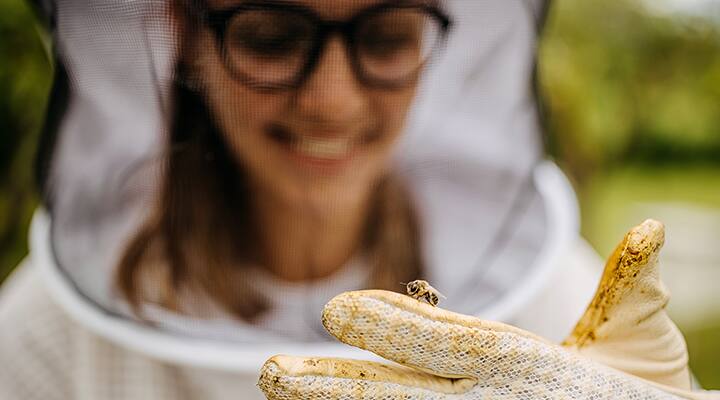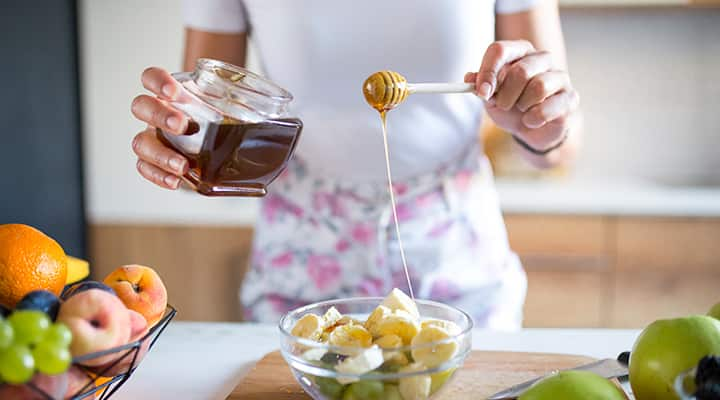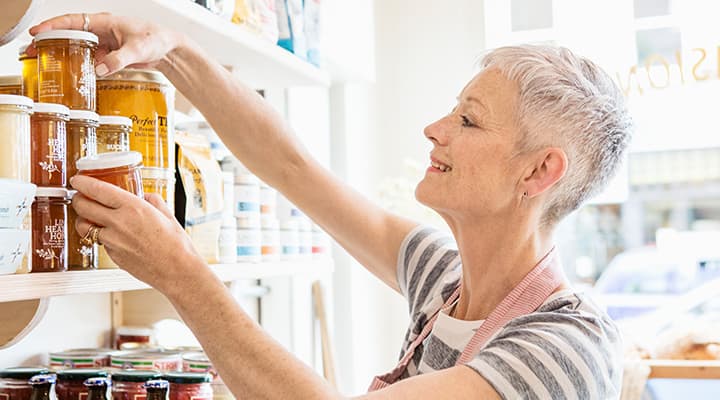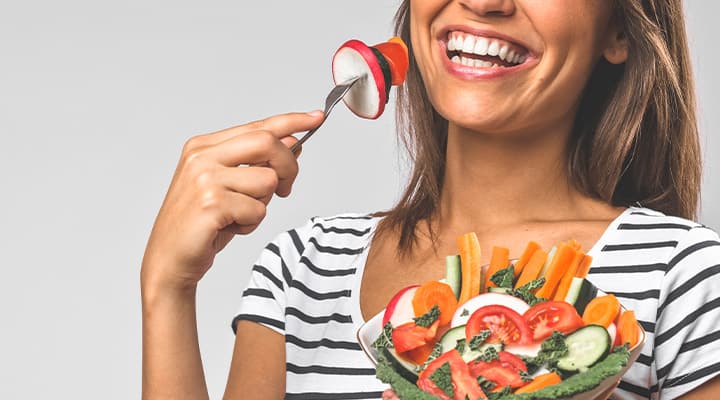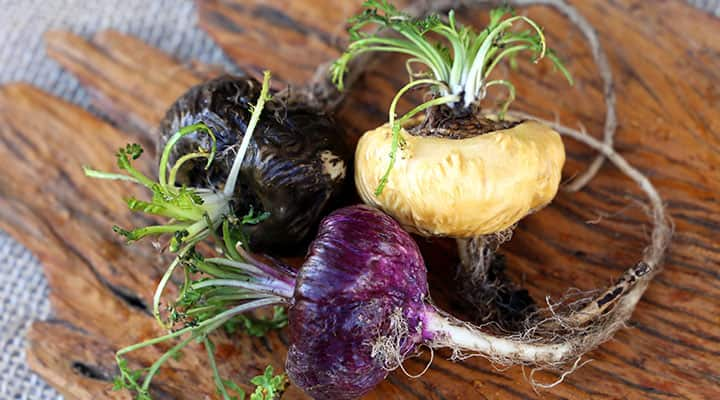
Local Honey for Allergies: The Bee’s Knees for Relief
Published: February 2023
Seasonal allergies can be a real buzzkill, but what if there was a sweet solution to your sniffling and sneezing…down the honey aisle at your local farmers market? That's right, local honey has been touted as a natural remedy for allergies for centuries – and for good reason. With its unique blend of pollen from the flowers in your area, consuming local honey is thought to help support immunity to allergens, providing relief from runny noses, sneezing and so much more.
Below you’ll discover the helpful benefits buzzing in local honey, as well as get some helpful tips on how to find (and what to look for) when shopping for this sweet solution – wherever in the world you may live. Sit back, relax and prepare to “bee” amazed by all the potential benefits local honey can have for your immune system health.
Why is local honey good for allergies?
When allergy season is upon us, unwanted symptoms such as sneezing, runny noses, and itchy eyes can make it hard to appreciate flowers and trees. Allergy shots are an answer, but they aren't for everyone. A sweet, natural solution to help relieve these nagging allergy symptoms and help bolster our immune system health might just be buzzing outside of your window: honey.
We’re not just talking about any type of honey, though…we mean local honey, and to be even more precise, local raw honey. Rather than going to a big box grocery and picking up a national brand of honey that is mass produced, for the maximum health benefits, you’ll want honey made by bees who gather nectar from the local flowers in your surrounding neighborhood–or even your own backyard (if you’re brave enough to venture into beekeeping, that is.)
What’s the difference? Raw honey from your home turf contains tiny amounts of localized pollen, which can help build immunity to seasonal allergies over time. This idea is based on the concept of immunotherapy (which is what you get from allergy shots), in which exposure to small amounts of an allergen can help reduce the body's sensitivity to it over time.
You may still be thinking honey goes on your favorite foods, not in your medicine cabinet. However, when local honey is combined with an over-the-counter medicine, the results can be un-bee-lievable. In fact, in a randomly controlled test, 40 allergic rhinitis patients were given Claritin and separated into separate groups to receive local honey at a dose of 1 gram per kg (1 gram per 2.2 pounds) or a placebo daily for four weeks. At week four, both groups showed progressive improvements, but at week eight, only the local honey group improved in allergy symptoms.
What type of local honey is best for allergies?
If you’re a honey aficionado, you probably know that there are different types of honeys. So which ones are best for allergies to pollen? Certain honeys such as tualang, manuka and gelam have been shown to contain a high number of health and wellness properties, such as flavonoids and polyphenols such as quercetin, kaempferol, chrysin, and apigenin. The properties of quercetin have shown clinical benefits for pollen and other seasonal allergies. In a randomized-controlled trial, 66 subjects with pollen allergies or hay fever were randomized to receive 200 mg of quercetin daily or a placebo for 4 weeks. The study concluded that those taking quercetin had significant improvements in eye itching, sneezing, nasal discharge, and sleep.
How local does honey need to be to help with allergies?
To get the full immune supporting benefits of local honey for allergy season, it's best to choose honey that is sourced from your immediate area. This is because the pollen that the bees gather to make the honey will be most similar to the pollen that is causing your allergies. The closer the source of the honey is to your home, the more likely it is to contain the allergens that you're sensitive to. By consuming local honey, you can gradually build up a tolerance to the allergens, reducing the severity of your allergy symptoms over time.
One interesting study about local honey consumption was conducted by a group living in the East Coast of Peninsular Malaysia who consumed raw, unprocessed, local honey collected near the Malaysian rainforest. While the exact distance is not described, the proximity was within a radius that the ingestion of the local honey helped improve the allergic symptoms.
As impressive as these results might be, it's important to note that not all local honey will have the same effect on everyone, as everyone's allergies are unique. However, incorporating local honey into your diet is definitely worth trying as a natural solution to help support allergy relief and support overall immune health and wellness year-round.
Pro tip: You will want to choose raw honey that is truly local to your area and not mass produced but sold in your local store. You can also consult with a local beekeeper or health food store employee to find out where the honey was sourced from to ensure you are getting the honey with the most health and wellness benefits.
How much local honey should I take for allergies?
There is no one-size-fits-all answer to this question, as everyone's allergies and tolerance levels for local honey are different. And, if you have serious allergies of any sort, you really should be under the care of an allergist. That being said, a general rule of thumb is to start with 1-2 teaspoons of local honey per day and gradually increase the amount over time. It's important to note that consuming too much honey at once can actually make your symptoms worse, so it's best to start small and gradually increase your intake over a few weeks. Some people may only need a teaspoon or two per day, while others may require more.
Of course, it's crucial to make sure that you're not allergic to honey before you start consuming it to treat your allergy symptoms. And just because you love the taste of honey doesn’t mean you should skimp on any other immune supporting vitamins and minerals you are currently taking. Always speak with your healthcare provider prior to incorporating honey into your health and wellness routine.
Where to get local honey for allergies
Ready to say hello to the health benefits of local honey and buh-bye to the symptoms of seasonal allergies? Well, lucky for you, you don’t have to buy a beehive or dress up in a beekeeper’s outfit (unless you really want to!)
to get honey local in your area. Here are four convenient ways to get your hands on this sweet, immune supporting food:
- Farmer’s markets – Farmer’s markets are a great place to find locally sourced honey. Not only can you find a variety of honey options, but you can also talk directly with the vendors and ask questions about the source and manufacturing of their honey. Make sure to only ask for raw, unfiltered honey, as this type of honey contains the most beneficial bacterium, enzymes and pollen.
- Health food stores - Mom and pop health food stores often carry a selection of local honey. Again, look for brands that specialize in raw, unfiltered honey and make sure to check the label to see where the honey is sourced from. If the honey comes from a different city or state than where you live, you may want to reconsider—unless you literally live a few miles from the state line!
- Local beekeepers - If all else fails in your quest for liquid gold, go to the source. Local beekeepers are the best resource for finding high-quality, local honey. You can usually find local beekeepers by searching online or asking at your local farmer’s market. When you buy honey directly from a beekeeper you’ll be knowledgeable about the process they use to make their honey and where the hives are located in relation to where you live.
- Online – Your local beekeeper or farmer’s market may sell their products online, which can be convenient for those who’d rather not shop till they drop at a brick-and-mortar location. Just be sure to check the source of the honey and read reviews before making a purchase to ensure you're getting high-quality, local honey.
Pro tip: Wherever you get your honey, it's important to choose unprocessed honey—that means raw, and unfiltered honey—as this type of honey contains more beneficial bacterium, enzymes and pollen than processed, filtered honey.
References:
- Asha’ari, Z. A., et al. “Ingestion of honey improves the symptoms of allergic rhinitis: evidence from a randomized placebo-controlled trial in the East Coast of Peninsular Malaysia.” Annals of Saudi Medicine. September 2013. https://www.ncbi.nlm.nih.gov/pmc/articles/PMC6074882/
- Yamada, S., et al. “Effects of repeated oral intake of a quercetin-containing supplement on allergic reaction: a randomized, placebo-controlled, double-blind parallel-group study.” European Review for Medical and Pharmacological Sciences. June 2022. https://pubmed.ncbi.nlm.nih.gov/35776034/
- Yong, P. Y. A., et al. “The Potential use of Honey as a Remedy for Allergic Diseases: A Mini Review.” Frontiers in Pharmacology. January 2021. https://www.researchgate.net/publication/348789996_The_Potential_use_of_Honey_as_a_Remedy_for_Allergic_Diseases_A_Mini_Review
Always be in the know!
Access the latest deals, wellness news, expert health tips & more!

